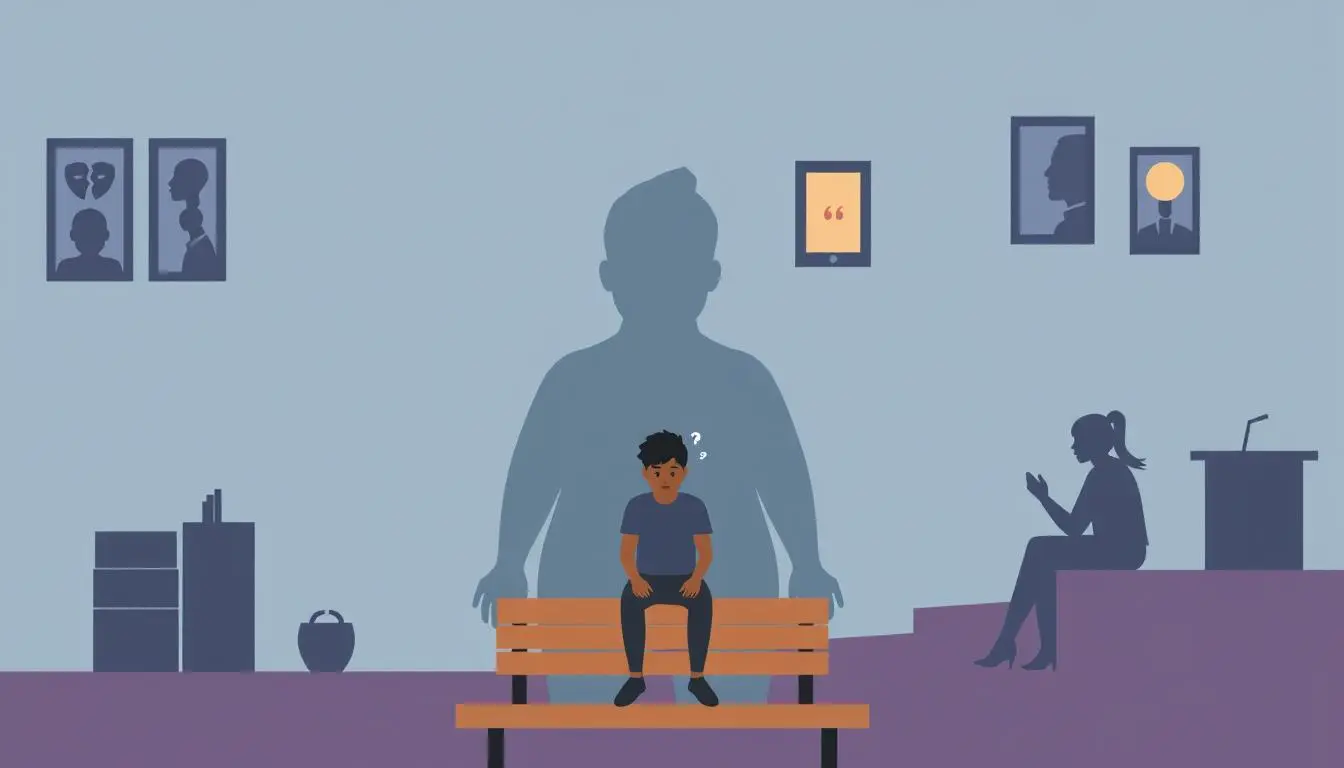Obesity and Mental Health in Teens
Hey there! Have you ever stopped to think about the connection between obesity and mental health in teens? It’s a topic that’s gaining more attention these days, and for good reason. As we all know, being a teenager can be tough enough as it is, but when you throw obesity into the mix, it can really take a toll on a young person’s mental well-being.
Obesity doesn’t just affect the body – it can also have a significant impact on mental health. From low self-esteem to depression and anxiety, the psychological effects of obesity in teens can be far-reaching. This is why it’s so important to address this issue head-on and provide support for teens who are struggling.
Throughout this article, we’ll explore how obesity can affect the mental health of teenagers, the challenges they may face, and most importantly, ways to help them navigate these difficult waters. So grab a cup of tea, get comfy, and let’s dive in!
The Impact of Obesity on Teen Mental Health
Hey there! Let’s talk about how obesity can affect the mental health of teens. When a teen struggles with obesity, it can have a significant impact on their mental well-being. They may experience feelings of low self-esteem, depression, anxiety, and even social isolation. These negative emotions can take a toll on their overall mental health and well-being.
It’s important to recognize the connection between obesity and mental health so that we can provide the necessary support and resources to help teens navigate these challenges. Encouraging healthy habits, promoting positive body image, and providing access to mental health professionals are all crucial steps in addressing the mental health implications of teen obesity. Remember, you’re not alone in this journey, and there are people who can help you every step of the way!
The Psychological Effects of Obesity in Teens
Obesity doesn’t just affect the body, it also takes a toll on the mind of teens. The psychological effects of obesity can be overwhelming, leading to low self-esteem, depression, and anxiety. Being overweight in a society that often values thinness can make teens feel ashamed and isolated.
It’s important to remember that obesity is not just a physical issue, but a mental health issue as well. Teens struggling with their weight may experience negative thoughts and emotions that impact their overall well-being. Seeking professional help from a therapist or counselor can provide support and guidance in dealing with these psychological effects. Remember, you are not alone and there is help available to improve your mental health while working towards a healthier lifestyle.
Behavioral Consequences of Teen Obesity
Hey there! Let’s talk about how being overweight can affect the way teens behave. Obesity in adolescents can lead to a variety of behavioral consequences that may impact their overall well-being. For example, some teens may turn to food as a coping mechanism for stress or emotional issues, which can contribute to unhealthy eating habits and weight gain. Additionally, obesity can also affect a teen’s self-esteem and confidence, leading to social withdrawal or even depression.
So, what can you do to address these behavioral consequences? It’s important to encourage healthy habits, such as regular exercise and nutritious eating, to help manage weight and improve mental health. Seeking support from family, friends, or a healthcare professional can also make a big difference in overcoming these challenges. Remember, you’re not alone in this journey!
Social and Emotional Challenges Faced by Obese Teens
Living with obesity as a teenager can bring about a range of social and emotional challenges. From feeling self-conscious about their appearance to facing bullying and discrimination, obese teens often struggle with their self-esteem and confidence. This can lead to feelings of isolation, depression, and anxiety, making it difficult to navigate through the already turbulent teenage years. It’s important for these teens to know that they are not alone in their struggles and that there are resources and support available to help them cope with these challenges. Encouraging open communication with trusted adults, seeking out peer support groups, and engaging in activities that promote self-care and self-acceptance can all contribute to improving their mental well-being. Remember, you are more than just a number on a scale, and you deserve to feel happy and confident in your own skin.
Strategies for Addressing Mental Health Issues Related to Teen Obesity
Hey there! If you or a teen you know is struggling with the mental health effects of obesity, know that you’re not alone. It’s important to remember that mental health is just as crucial as physical health. One effective strategy is seeking professional help from a therapist or counselor who specializes in working with teens. They can provide valuable support and guidance to help navigate the challenges associated with obesity.
Another great approach is incorporating regular physical activity into your routine. Exercise not only helps improve physical health but also boosts mood and mental well-being. Remember, small changes can make a big difference!
Don’t forget to surround yourself with a supportive network of friends and family who can offer encouragement and understanding. Building a strong support system is key in facing mental health challenges. Stay positive and remember that you have the strength to overcome obstacles. You’ve got this!
Resources and Support for Teens Struggling with Obesity and Mental Health
Hey there! If you or a teen you know is dealing with the challenges of obesity and its impact on mental health, you’re not alone. There are plenty of resources and support available to help navigate through these tough times.
- Therapy and Counseling: Speaking to a therapist or counselor can provide a safe space to explore emotions, develop coping strategies, and work through any underlying issues contributing to obesity and mental health concerns.
- Support Groups: Joining a support group for teens facing similar struggles can offer a sense of community, understanding, and encouragement.
- Healthy Lifestyle Programs: Engaging in programs that focus on nutrition, exercise, and overall well-being can help in managing weight and improving mental health.
Remember, it’s important to prioritize your mental health and seek help when needed. Don’t hesitate to reach out to trusted adults, healthcare professionals, or organizations specializing in teen obesity and mental health.


